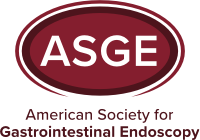ERCP & EUS, Bariatric Endoscopy, Third Space Endoscopy
Mayo Clinic Florida
4500 San Pablo Road
Graduate Medical Education Stabile North 790
Jacksonville, Florida 32224
904-953-8298 (V)
Website
1 Position Available
Program Type: Both ERCP & EUS
Authorized Administrative Official: Michelle Tuetken (email)
Program Director: Victoria Gomez, MD, FASGE, D-ABOM (email)
Program Director Phone: 904-953-2221
Duration: 2 Years
Inclusive Dates of the Program: 7/1/2027 to 6/30/2029
Program Website: college.mayo.edu/academics/residencies-and-fellowships/advanced-endoscopy-fellowship-florida/
Accepts applicants from outside of North America? Yes
Accepts applicants with J1 visas? Yes
Accepts applicants with H1B visas? Yes
Accepts applicants with E3 visas? No
Type of Interview Offered: In-Person
Supervised ProceduresProcedure |
Faculty Involved in AEF Training | Total Annual Volume | Average Annual Volume with Hands-on AEF Involvement per Fellow |
|---|---|---|---|
| ERCP | 4 | 600 | 600 |
| Diagnostic EUS | 5 | 700 | 700 |
| Interventional EUS | 5 | 400 | 400 |
| Deep enteroscopy | 2 | 500 | 500 |
| Luminal stenting | 6 | 150 | 150 |
| ESD | 2 | 50 | 50 |
| Bariatric endoscopy | 3 | 100 | 100 |
| POEM | 2 | 50 | 50 |
| Endoscopic management of GERD and Barrett’s | 2 | 20 | 20 |
Unsupervised Trainee ActivitiesProcedure |
Value |
|---|---|
| General GI procedures (per year) | 0 |
| Inpatient general GI service (weeks/year) | 0 |
| Inpatient advanced endoscopy service (weeks/year) | 0 |
| Ambulatory clinics (per year) | 4 half days per week |
| Committed time for research (days/month) | As needed |
Requirements for Application
- Standard ASGE Application Packet
- ASGE Application
- Post-Undergraduate Education
- USMLE Scores
- Certification of Completion of Residency
- Prior to appointment in the advanced endoscopy fellowship, fellows should have completed a three-year ACGME-accredited gastroenterology fellowship
- Fellows from non-ACGME-accredited programs must have completed at least three years of gastroenterology education prior to starting the fellowship
- Personal Statement
- Curriculum Vitae
- 3 Letters of Reference
Additional Information about Program
The Advanced Endoscopy Gastrointestinal Fellowship Program provides the opportunity for intense and state-of-the-art training with the goal of developing future leaders in the field of medicine and endoscopy.
Clinical Training
Upon completion of the Advanced Endoscopy fellowship, one should be able to:
Develop basic understanding of the Indications, techniques, risks and benefits, limitations and strengths of the various diagnostic and therapeutic techniques available to the subspecialty of advanced endoscopy
Become technically competent and understand the roles of Endoscopic ultrasound (EUS), Endoscopic Retrograde Cholangiopancreatography (ERCP), Endoscopic resection techniques of laterally spreading foregut and hindgut lesions, Bariatric Endoscopy, deep enteroscopy, and third space endoscopy.
Medical Knowledge
• Demonstrate knowledge of the scientific method of problem solving and evidenced-based decision making
• Demonstrate knowledge of anatomy, physiology, and pathology of complex pancreaticobiliary and oncological diseases and conditions, using best practices and evidence-based guidelines to provide sound patient care
• Observe unique features of dedicated echoendoscopes, catheter probes, and EUS/ERCP accessories
• Begin the process of overseeing and teaching these skills and techniques to GI fellows
• Integrate proper reimbursement and billing into their practice
Rotation Schedule
The following is a sample of the Advanced Endoscopy Fellowship Weekly Schedule
The advanced endoscopy fellow will typically be assigned to 90% time doing EUS and ERCP, 5%-time research and 5%-time clinical service (if U.S. Board eligible).
Didactic Training
In addition to hands-on performance of these techniques, the curriculum includes a series of didactic lectures. These lectures are provided by the EUS and ERCP staff, other GI and Non-GI physicians who utilize these techniques, radiologists, oncologists, and conferences directed by advanced fellows.
Conferences
In addition to the weekly GI divisional and research conferences, there are separate endoscopy conferences, GI Advanced Endoscopy Group Meeting, and a monthly GI Research Group meeting. As an advanced fellow, you will be responsible for presenting at several of these forums and for the coordination of intermittent advanced endoscopy meetings.
Research Training
Regular and structured meeting are held between fellows and identified mentors to design and conduct research protocols. Fellows also work with other members of the GI Division with diverse skills and investigative backgrounds. Research projects are further developed and implemented in one of our varied GI Subspecialty Clinics and Interest Groups.
You will have dedicated time for work on mutually agreed upon research projects. The development of Advanced Endoscopy-based studies is required. You will be encouraged to initiate the planning and dialogue of these studies prior to beginning the fellowship program.
Publications and Presentations
It is anticipated that the studies will generate results and information suitable for publication in a major GI subspecialty journal. The development of abstracts for at least two of the major national GI meetings (DDW week: AGA/ASGE; fall ACG) also is anticipated.
Teaching Opportunities
Opportunities are available for teaching rotating Gastroenterology fellows in the endoscopy suites and residents and fellows during conferences.
Evaluation
To ensure that you acquire adequate knowledge and develop your technical skills, your performance will be monitored quarterly during the course of your training program. You will be evaluated formally by your supervising faculty member on a regular basis and will meet with the program director to review these evaluations. In addition, you will regularly evaluate the faculty to ensure that your educational needs are being met.
Please Note: All data in this program description is entered on a voluntary basis
